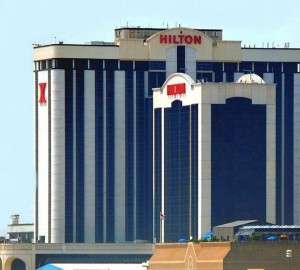Will the Atlantic Club Seek a New Buyer?
On Friday a New Jersey judge dissolved a temporary restraining order obtained by Rational Group two weeks ago against the owners of the Atlantic Club Casino. The TRO prevented the owners, Colony Capital LLC, from shopping the casino around to new buyers while Rational Group attempted to litigate Colony’s April termination of Rational’s deal to acquire the property.
With the TRO no longer in place, Colony is free to sell the Atlantic Club to other potential buyers while Rational theoretically continues to litigate its dispute with Colony. In practice, however, Rational is not likely to continue the litigation, as Judge Raymond Batten’s ruling on the TRO considerably dampens Rational’s likelihood of success in the case. And even if Rational were to succeed, Colony is likely to sell the Atlantic Club long before the case comes to a conclusion.
The big question now is three-fold: (a) is there really any other buyer interested in the property; (b) will Colony re-commence negotiations with Rational at a significantly higher valuation; and (c) is there any chance that Colony will retain the property now that New Jersey has enacted online gaming legislation?
Idle speculation suggests that Station Casinos could be a good fit for the Atlantic Club, due to its prior business relationships with Colony. To date there has been no public announcement of either an acqusition of the Atlantic Club by, or a Colony partnership with, Station. Atlantic Club COO Michael Frawley said Friday after the ruling, “We are now free to build on the tremendous opportunity provided by online gaming,” suggesting that Colony terminated the deal to make a go at online gaming themselves.
That’s hard to imagine, given the Atlantic Club’s track record in the face of the obstacles of the last five years. The casino has operated in the red since 2007, losing more than $100 million in that span. Its loss from operations was $26.8 million in 2012 alone.
The Atlantic Club also has unfunded pension obligations of $32 million and faces stiff competition not only from the other 11 Atlantic City casinos but also casinos that have sprouted in eastern Pennsylvania and Delaware over the last six years. The first Maryland casinos are scheduled to open later this year, potentially further eroding the Atlantic Club’s player base.
Frawley and other casino executives also had to know, at the time the acquisition agreement with Rational was signed in December, that there was at least an even chance that online gaming would be legalized in New Jersey. The State Senate had overwhelmingly passed an online gaming legalization bill just four days before the deal was inked. The bill was then sent to Gov. Chris Christie for his consideration.
While Rational obviously would have less or no interest in the Atlantic Club if Christie vetoed the measure, the potential upside of legalization surely outweighed the potential downside of passing on Rational’s $15 million offer and getting stuck holding the bag if legalization failed, which ultimately would have meant putting the property into bankruptcy. Why not wait?
The answer seems likely to be that Atlantic Club officials realized back in December that even with legalized intrastate online gaming, there’s no place for the Atlantic Club in the online gaming market without a significant online gaming partner like Rational. The casino has no online gaming software and no built-in employee knowledgebase regarding online gaming, putting it at a competitive disadvantage to casino groups like MGM and Caesars. Those operators have an additional leg-up on Atlantic Club by virtue of their deep pockets.
The reality is that a casino as small as Atlantic Club will have a difficult time leveraging the promise and potential of online gaming fast enough to turn its fortunes around without requiring a massive capital injection. After spending $100 million keeping the Atlantic Club in business the last five years, Colony can be excused if it’s a little gun-shy about more spending now.
It’s much easier to imagine a buyer like Rational using its own existing brand, market share and combined live-and-online gaming expertise to make the Atlantic Club profitable. That’s why so many industry observers believe that there’s another potential bidder waiting in the wings who is willing to pay significantly more than $15 million for the property now that New Jersey has legalized full-fledged online gaming. Whether that bidder is Rational, Station or some other industry operator remains to be seen.
Rational obtained the TRO two weeks ago after Colony exercised a termination provision in the acquisition agreement for the casino. Court filings revealed that Rational agreed to pay $15 million for the Atlantic Club, the lowest price ever paid for an Atlantic City casino, and had already injected $11 million into the ailing casino in the months since the deal was signed.
The dispute that led to the lawsuit and the TRO hinged on the construction of a provision in the acquisition agreement that allowed either side to terminate the deal if Rational hadn’t received preliminary licensing approval from New Jersey regulators by April 26. When that date passed and Rational was still months away from a final determination on its license application, Colony terminated the deal.





















COMMENTS